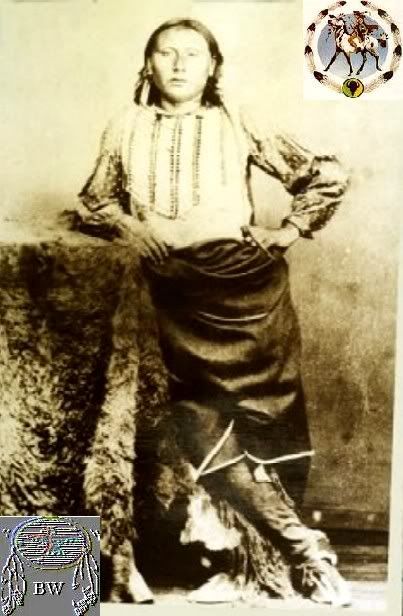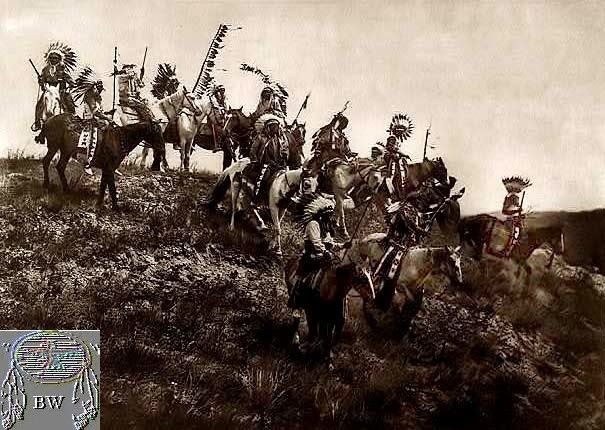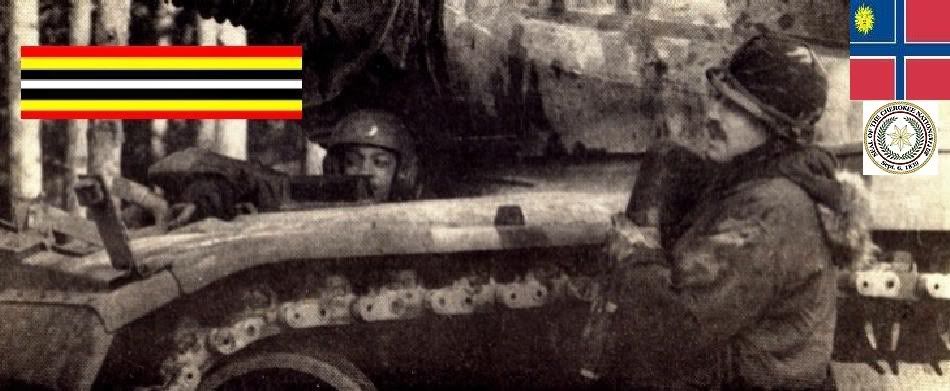|

Chief Big Tree
(1847-1929)
Warriors Citation
Big Tree (from the Kiowa Adoeette ado, meaning "tree", and e-et, meaning "large") was a major Kiowa war chief late in the
nineteenth century. Throughout the 1850s and 1860s, when Big Tree was young, the Kiowas raided the Texas Plains until their
chief, Dohosan, died in 1866. Dohosan was succeeded by a new chief, Lone Wolf, who also resisted white settlement on their
lands. Reared in this pattern of resistance, it is not surprising that in May 1871, Big Tree, Satanta, and Satank, along with
a force of over three hundred, struck a wagon train in Young Country, Texas, taking its mules and leaving seven men dead.
Returning to their reservation at Fort Sill in Native American Territory, they openly boasted of the raid at the trading post.
Shortly thereafter, Big Tree, Satanta, and Satank were arrested and jailed. The three were sent to Texas to stand trial for
their depredations. On the way to Texas, Satank attempted to flee his captors and was killed. Big Tree and Satanta were tried
and sentenced to death, but the protests of sympathetic whites over the harsh sentences deterred their execution; their sentences
were commuted to life imprisonment at Huntsville, Texas. The Bureau of Native American Affairs argued that the two men should
not be released since their raid was an act of war. Two years later in 1873, Big Tree and Satanta were paroled on assurances
of good behavior and confined to Native American Territory.
In 1874-1875, violence erupted once again when the army confiscated some Kiowa horses.

Consequently, the government became alarmed when Quanah Parker, Big Tree, and Satanta left Native American Territory while
on a hunting expedition to Kansas. The army contingent of three thousand men pursued them until they surrendered at the Cheyenne
Agency. Big Tree was briefly incarcerated at Fort Sill for violating parole, while Satanta was jailed in Huntsville, where
he committed suicide. Big Tree, when he was released in 1875, settled down to a peaceful life on the Kiowa Reservation, operating
a supply train from Anadarko to Wichita. Wedding a Kiowa woman, Omboke, he became a Christian and attended the Rainy Mountain
Baptist Church, where he taught Sunday school and was deacon for over thirty years. Farming his allotment near Mountain View,
Kiowa Country, Oklahoma, he became a model and peaceful citizen in his later years. He died on November 13, 1929, at Fort
Sill. From: historical accounts & records


LINK TO BRAVEHORSE WARRIORS VOLUME TWO
|

